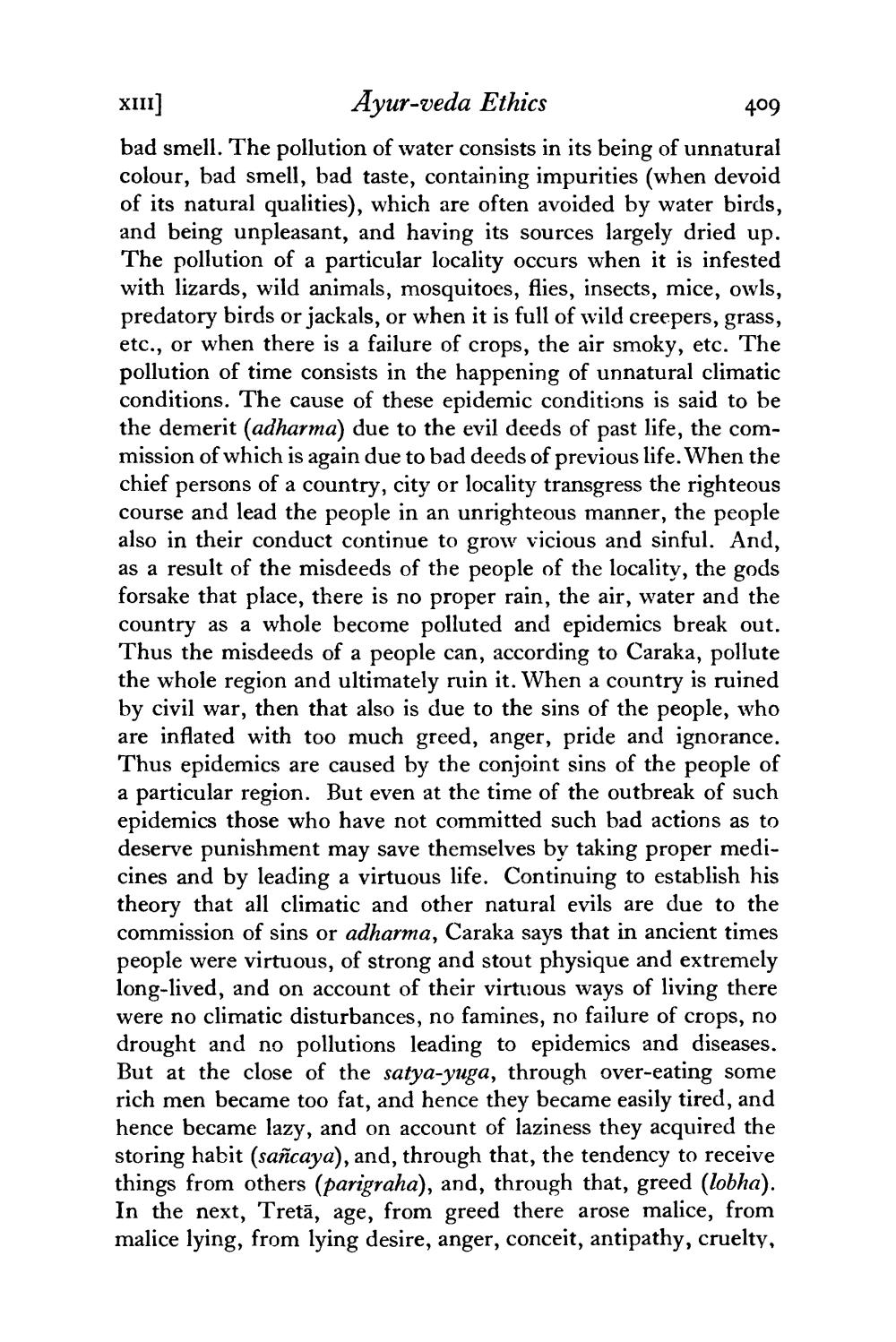________________
409
XIII]
Ayur-veda Ethics bad smell. The pollution of water consists in its being of unnatural colour, bad smell, bad taste, containing impurities (when devoid of its natural qualities), which are often avoided by water birds, and being unpleasant, and having its sources largely dried up. The pollution of a particular locality occurs when it is infested with lizards, wild animals, mosquitoes, flies, insects, mice, owls, predatory birds or jackals, or when it is full of wild creepers, grass, etc., or when there is a failure of crops, the air smoky, etc. The pollution of time consists in the happening of unnatural climatic conditions. The cause of these epidemic conditions is said to be the demerit (adharma) due to the evil deeds of past life, the commission of which is again due to bad deeds of previous life. When the chief persons of a country, city or locality transgress the righteous course and lead the people in an unrighteous manner, the people also in their conduct continue to grow vicious and sinful. And, as a result of the misdeeds of the people of the locality, the gods forsake that place, there is no proper rain, the air, water and the country as a whole become polluted and epidemics break out. Thus the misdeeds of a people can, according to Caraka, pollute the whole region and ultimately ruin it. When a country is ruined by civil war, then that also is due to the sins of the people, who are inflated with too much greed, anger, pride and ignorance Thus epidemics are caused by the conjoint sins of the people of a particular region. But even at the time of the outbreak of such epidemics those who have not committed such bad actions as to deserve punishment may save themselves by taking proper medicines and by leading a virtuous life. Continuing to establish his theory that all climatic and other natural evils are due to the commission of sins or adharma, Caraka says that in ancient times people were virtuous, of strong and stout physique and extremely long-lived, and on account of their virtuous ways of living there were no climatic disturbances, no famines, no failure of crops, no drought and no pollutions leading to epidemics and diseases. But at the close of the satya-yuga, through over-eating some rich men became too fat, and hence they became easily tired, and hence became lazy, and on account of laziness they acquired the storing habit (sañcaya), and, through that, the tendency to receive things from others (parigraha), and, through that, greed (lobha). In the next, Tretā, age, from greed there arose malice, from malice lying, from lying desire, anger, conceit, antipathy, cruelty,




